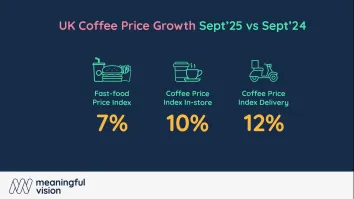
Private equity are losing their appetite for casual dining: report
Different ways to fund restaurants will give rise to different operating models.
In the short term, analyst Peter Backman said that private equity will still have no appetite for casual dining.
This opinion comes at the back of a recent statement from Andy Hornby, CEO of The Restaurant Group, questioning the potential size of the casual dining industry that has sparked discussions on its growth and future prospects. The industry has been around for over a century and has undergone several changes in its definition, expectations, and capabilities.
Casual dining businesses, including independent restaurants and pubs, had a small share of the economy in their time but grew to have a significant share of the eating-out market, worth nearly $19b in 2019.
However, Backman said Hornby's comments seem to be focused on the specific chain sector that experienced significant growth in the 2010s, backed by private equity funds but suffered from a lack of differentiation, bland offerings, and overcapacity.
“That sector suffered from its faults – a convergence on a bland offering, with moderate service levels, and overcapacity driven by the lure of scalable growth (which made the sector so appealing to investors). Nevertheless, this sector, just one manifestation of casual dining, showed solid year-on-year growth in the post-Great Recession period,” Backman said.
Backman adds aside from private equity, there are other ways to fund restaurants, citing franchising as an example.
“These ‘other’ ways will give rise to different operating models which will, in turn, influence where consumers eat out and how much they spend,” Backman said.
























